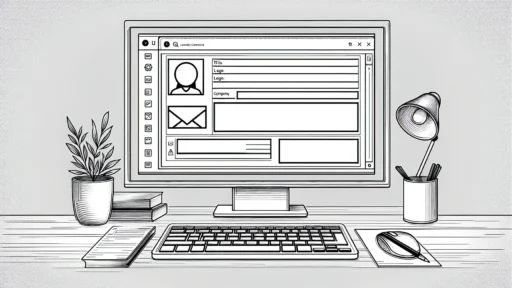Title transfer in Louisiana can be confusing, especially for first-time buyers or sellers. Understanding the process is crucial to ensure a smooth transaction and protection of one’s investment. Knowing the ins and outs of title transfer can save time and avoid potential legal headaches, whether it is a vehicle, property, or boat.
Transferring title in Louisiana provides a different process and requirement depending on the subject asset. Having a sense of direction can make quite a difference in how one acquires the documents necessary through state regulations. This paper breaks down the critical components of performing a title transfer in Louisiana: being informed and prepared for one’s transaction.
Overview of Title Transfer Louisiana
Title transfer in Louisiana involves several key steps to ensure ownership is correctly conveyed for vehicles, real estate, or boats. Understanding these steps is crucial for a smoother transaction.
- Gather Required Documents
Collect essential documents, including the original title, a bill of sale, and lien releases. For property, a sales agreement and proof of identity are necessary. - Complete the Application
Fill out the relevant application forms specific to the type of asset being transferred. Each type may have distinct requirements, so using the appropriate forms found on state websites is essential. - Submit Paperwork to the Appropriate Authority
File the completed paperwork with the Louisiana Office of Motor Vehicles (OMV) for vehicles or local parish clerk’s offices for real estate transactions. Ensure all documents are submitted to avoid delays. - Pay Applicable Fees
Expect to pay the necessary fees associated with the transfer process. Fees vary by asset type; verifying current rates before initiating the process is advisable. - Receive Confirmation of Transfer
After successful submission, wait for confirmation that the transfer has been processed. A new title or deed will be issued reflecting the change of ownership.
Title transfers in Louisiana must be done carefully, considering all the state’s regulations and with the right documentation. Understanding the whole process protects your investment and makes the experience seamless.
The Title Transfer Process
Ownership transfer of the title in Louisiana needs certain documents and steps to legally transfer ownership. It should be in the buyer’s and seller’s best interest to be aware of such a requirement for a smooth transaction without complication.
Required Documents
- Original Title: The current title must be provided, showing ownership.
- Bill of Sale: A signed bill of sale is required to document the transaction, specifying details like purchase price and date.
- Application for Title: This form must be completed accurately and is often available through the Louisiana Office of Motor Vehicles (OMV) or local authorities.
- Identification: Valid identification, such as a driver’s license or state ID, is necessary for verification.
- Proof of Insurance: For vehicles, proof of insurance is needed before completing the transfer.
- Payment: Fees vary based on the type of transaction and location; thus, preparing payment methods in advance is essential.
- Gather Required Documents: Collect all necessary paperwork before starting the process.
- Complete the Application: Fill out the application for the title, ensuring all information is accurate and complete.
- Submit Paperwork: Take the completed documents to the appropriate local agency, such as the OMV or court clerk.
- Pay Fees: Submit payment for applicable fees, keeping receipts for records.
- Receive Confirmation: Wait for confirmation of the title transfer, which may include a new title issued to the buyer.
These steps create a systematic approach to ensure a seamless transfer, fostering confidence and protection for both parties involved.
Common Challenges in Title Transfers
Title transfers in Louisiana can present several challenges. Buyers and sellers often encounter obstacles that can delay or complicate the process.
Legal Complications
Legal complications often arise during title transfers. Disputes over property ownership, liens, or claims from third parties can hinder transaction progress. Buyers should verify the title’s history to ensure no outstanding debts or legal issues exist. Sellers must provide clear documentation proving ownership and resolve any exceptional liens before proceeding. Engaging a real estate attorney or title company can help you navigate these complexities effectively.
Errors in Documentation
Errors in documentation frequently occur during title transfers. Missing signatures, incorrect names, or incomplete forms can delay processing. Buyers and sellers must ensure accuracy in all submitted paperwork, especially the original title and bill of sale. Double-checking documents before submission reduces potential issues and contributes to a smoother transfer process. A systematic approach helps mitigate these problems—collect all required documents, review them for completeness, and follow the instructions precisely.
Important Considerations
Understanding key factors during a title transfer in Louisiana enhances the likelihood of a seamless process. Timing, fees, and types of ownership play significant roles in making informed decisions.
Timing and Fees
Timing affects both the transfer process and associated fees. Applicants typically experience processing times ranging from a few days to several weeks, depending on the specific local agency’s workload and the complexity of the transfer. Fees vary based on the item being transferred, with vehicle transfers generally incurring nominal fees, while property transfers often involve additional costs like transfer taxes. Budgeting adequately for fees and potential delays is crucial to avoid complications during the transfer process.
Types of Ownership
Understanding ownership types is vital in Louisiana’s title transfer system. Each ownership structure affects how the title transfer occurs and what documents may be required. The primary types of ownership include:
- Sole Ownership: One person holds complete ownership, making the transfer process straightforward.
- Joint Tenancy: Two or more people share ownership with rights of survivorship, requiring all owners to consent to the transfer.
- Tenancy in Common: Multiple owners hold distinct shares without rights of survivorship, allowing any owner to transfer their share independently.
- Community Property: Applies to married couples, requiring both spouses’ consent for title transfers, emphasizing ensuring accurate documentation.
Recognizing these categories aids buyers and sellers in determining the best approach to conduct a title transfer and ensures compliance with state requirements.
Resources for Title Transfer in Louisiana
Louisiana provides various resources to assist with title transfers, ensuring all parties can access the necessary information and support. Utilizing state agencies and online tools simplifies the process significantly.
State Agencies
Louisiana’s title transfer process involves specific state agencies that oversee vehicle and property transactions. Key agencies include:
- Louisiana Office of Motor Vehicles (OMV): Handles vehicle title transfers. They provide forms, application guidelines, and fee structures. Local OMV offices can assist with completing documents and verifying requirements.
- Louisiana Secretary of State: Oversees property title transfers. This office manages property records and helps facilitate the transfer of titles for real estate.
- Parish Clerk of Court: Important for property transactions, particularly for recording liens and engaging in property disputes. They maintain public records that affect ownership claims.
Online Tools and Services
Various online tools enhance the convenience of title transfer in Louisiana. Available resources include:
- OMV Online Services: Allows individuals to complete title transfers and pay fees online. Users can access forms, check status, and find local agency contact information through their platforms.
- Secretary of State Website: Offers an online portal for property title information, including searches for existing titles and liens. Users can explore resources for forms and regulations about property transfers.
- Local Government Websites: Many parish governments provide online resources to help users navigate local laws and requirements associated with title transfers. These sites often have links to necessary forms and contact information for regional offices.
These resources support efficient title transfer processes, reducing delays and ensuring compliance with state regulations.
Discover the Power of BlueNotary:
Integrate your Business, Title Company, or Law Firm to Satisfy your Customers and Decrease Turnaround
Get a document Notarized/Sign-up
Join the Free Notary Training Facebook Group
Conclusion
Transfers of title in Louisiana may be easy with the proper knowledge and preparation. In that respect, one can only avoid common pitfalls from delays and complications if the correct documents about the state’s regulations are prepared.
Proactively verifying title history and documentation accuracy further facilitates ease in this experience. One can also use available resources and agencies throughout the process to a great degree. It requires a careful eye for detail and a good understanding of the steps involved to make the title transfer successful, with protection for buyers and sellers alike.
Frequently Asked Questions
What is the title transfer process in Louisiana?
The title transfer process in Louisiana involves several steps: gathering necessary documents (like the original title and bill of sale), completing application forms, submitting them to the appropriate authority, paying applicable fees, and awaiting confirmation of the transfer. Understanding these steps is crucial for a smooth transaction, whether dealing with vehicles, property, or boats.
What documents are needed for title transfer?
You’ll need the original title, a signed bill of sale, an application for title, valid identification, proof of insurance (for vehicles), and payment for fees. All required documents are essential to avoid delays during the title transfer process.
How do I verify the title before the transfer?
Check for any liens, claims, or ownership disputes to verify the title. It’s also wise to review the title’s history. This ensures you know any issues that could complicate the transfer and helps safeguard your investment.
What are common challenges in title transfers?
Common challenges include legal complications, errors in documentation (like missing signatures or incorrect names), and disputes over ownership. These issues can delay the process, so ensuring all paperwork is accurate and complete is vital.
What types of ownership affect title transfers?
Types of ownership that affect title transfers include sole ownership, joint tenancy, tenancy in common, and community property. Each type requires specific documentation and affects the overall transfer process. Understanding these differences can help streamline your experience.
Where can I find assistance with title transfers in Louisiana?
You can find assistance through various state agencies, such as the Louisiana Office of Motor Vehicles (for vehicle transfers), the Louisiana Secretary of State (for property transfers), and the Parish Clerk of Court (for recording liens). Online tools are also available for convenience.
How long does a title transfer take in Louisiana?
Processing times for title transfers can vary based on local agency workloads and the complexity of the transfer. It’s essential to be patient and follow up with the relevant local agency if you experience delays.
DISCLAIMER
This information is for general purposes only, not legal advice. Laws governing these matters may change quickly. BlueNotary cannot guarantee that all the information on this site is current or correct. For specific legal questions, consult a local licensed attorney.
Last updated: March 21, 2025












